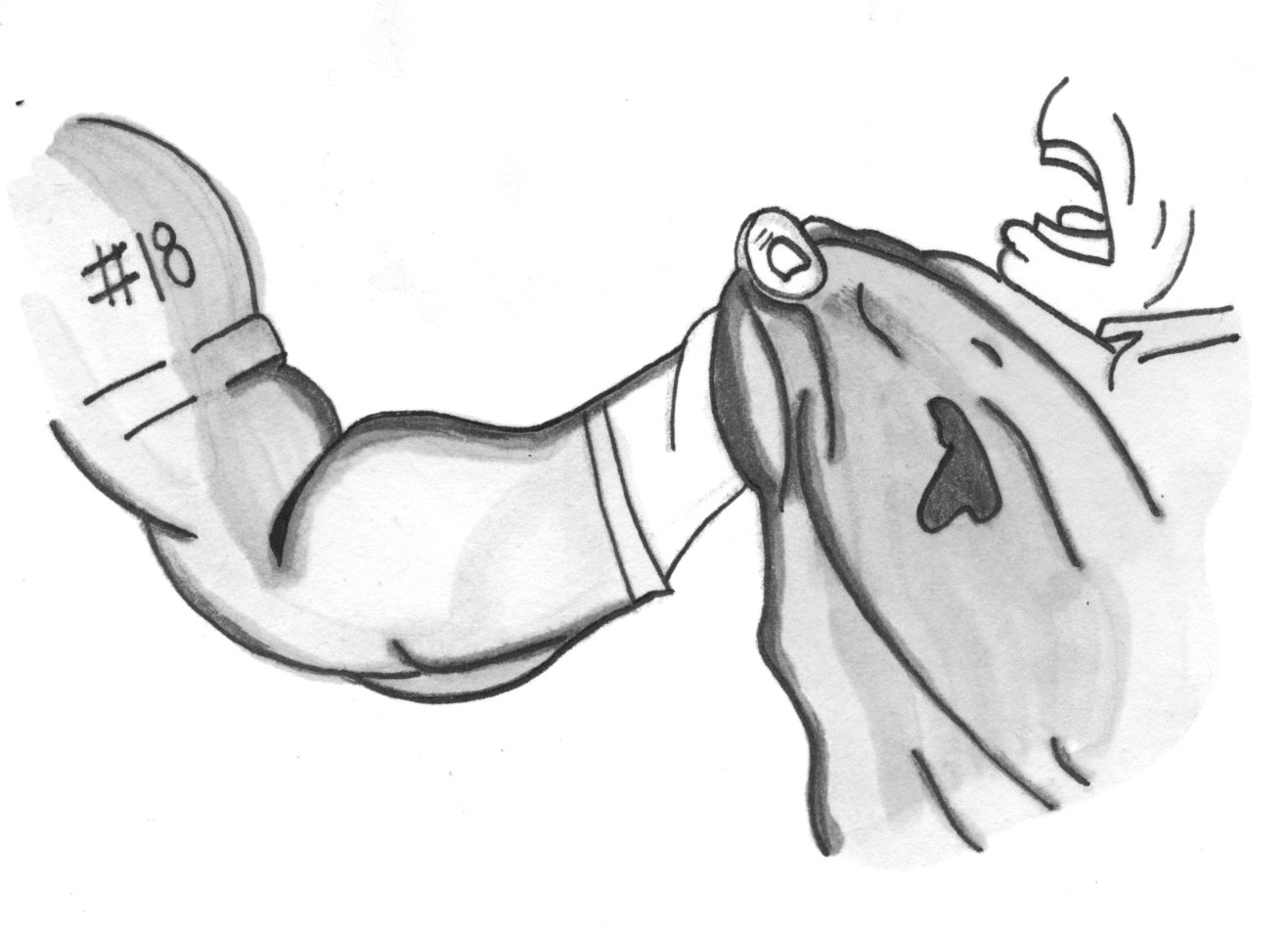Juxtaposing Sport and Violence
March 4, 2019
I like watching sports with a fresh mind. When we take away our emotional attachment to one team or the other and choose not to judge the players for minute details of technique, we can see the sport for what it really is: violent, brutal and utterly human.
An interesting parallel is often drawn between sports and war. Norman Fischer, in “Competitive Sport’s Imitation of War: Imaging the Completeness of Virtue,” illustrates this parallel. Fisher states,“The language of competitive sport is ubiquitously infused with metaphors of war and battle. A sampling of the daily sports page reveals conquest, battle, war, killing, destruction, victory and the rhetoric of the taking of manhood, honor and prestige. If we listen simply to the athletes and spectators of competitive sport, we are quite impressed with its violence. Further, when we witness both the competitors and their spectators, we experience viscerally the violence of the desire for victory through the sights and sounds of the crowd and the aggression of the competitors. Sport appears to practice a certain kind of violence.”

I think that it is important to understand the ways in which sport is different from war, because sport is surely more morally permissible. On one level, sports are “play pretend” violence and war. It may be violent, but it is “just a game.” This distinction is substantial: it suggests that it’s not real. Also, sporting institutions exist to minimize injury and post-game repercussions, while the intent in actual war is exactly the opposite.
There could be some value to venting this desire. For example, sports teams and spheres are one of the only places men are comfortable expressing authentic emotion. The bonds made within a team are palpable, if the team is operating correctly. Observers also bond over the sport with other observers, maybe with a team in common, or simply over an appreciation for the game or sport.
There is a classic trope of middle-aged American men being able to talk about nothing more than football, and I think not only does this have some truth in it, it makes some sense. It feels great to yell at a screen. It feels even greater to yell at a screen with a buddy, who is yelling at the screen for the same reason you are. The bonds made here are real, there is no denying that, but they could be built on a weak foundation.
I have a hard time being happy with the idea that men find it easiest to bond over faux-violence. I think, while they might not be the easiest ways now, there are better ways for men to bond and express emotion.
The problem must arise from how we treat emotion in men, and maybe just emotion in general. The way we treat it, it is fine to be sad because your team lost. But what a trivial reason that is! It is so much easier to express this sort of disappointment, than, for instance, sadness because one’s job isn’t fulfilling, or because the thought of a loved one’s death is weighing especially heavily today.
Sport as an emotional outlet may be helpful, but like anesthetic to an infection. There surely must be some value in sports, but to obsess over violence enough to make baseball the US national pastime and to have the Super Bowl be the most-watched television event annually, there must be some cause and some effect: I am hesitant to be optimistic regarding either.




